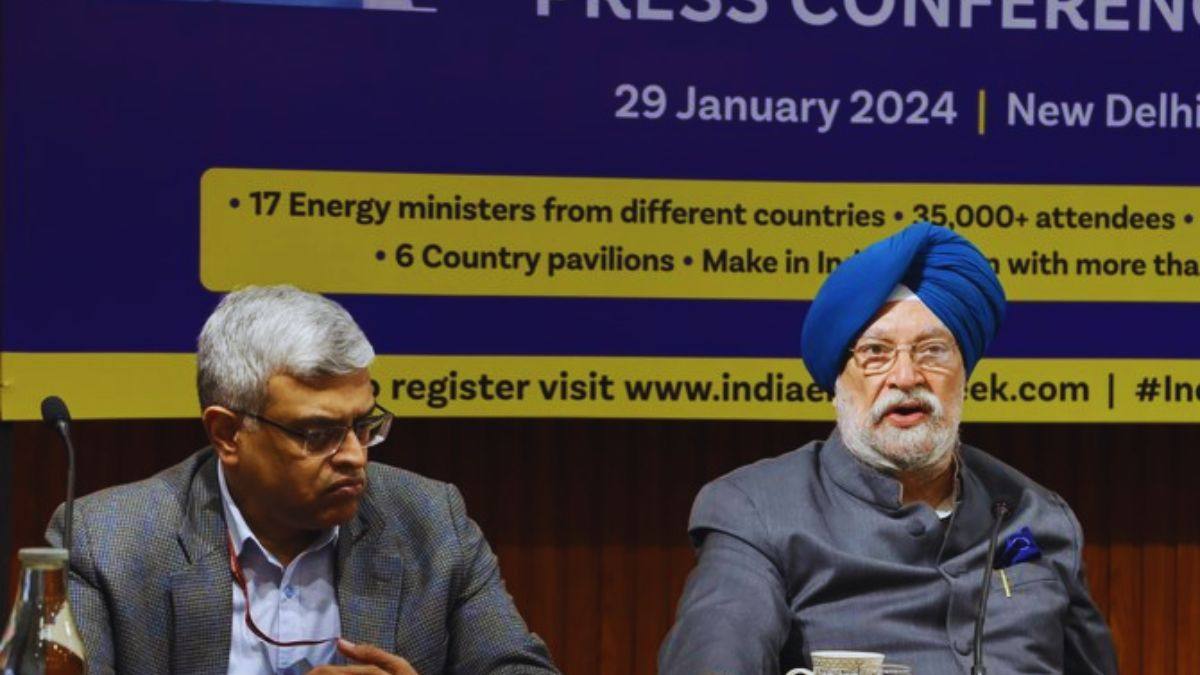The South Asian country will host 17 ministers and more than 4,000 delegates from over 100 countries for the second edition of IEW, which will be held in the western state of Goa from February 6 to 9.
During a press conference in New Delhi, Indian Oil Minister Hardeep Singh Puri expressed confidence in India’s energy outlook, describing IEW as a “golden opportunity” to showcase energy progress as well as a “platform for further development and growth.”
India aims to install 50 gigawatts of clean energy by the end of the decade and achieve net zero emissions by 2070. India, the world’s most populous country, is still primarily powered by fossil fuels, with coal accounting for roughly 70% of electricity generation and renewable energy accounting for approximately 10%.
IEW’s growth in its second year, with 30% more exhibitors than in 2023, is a “testament to India’s strong economic credentials and commitment to energy innovation,” Puri said.
Saudi Arabia, which signed a number of energy cooperation agreements with India last year, is also expected to participate in the IEW next month.
“Saudi Arabia is an important part of India Energy Week, with Aramco being one of the main platinum sponsors of the event,” Puri said in a statement.
Last September, Saudi and Indian officials agreed to collaborate on renewable energy and energy security, followed by a preliminary agreement on electrical interconnection and co-production of green and clean hydrogen.
According to experts, the Goa event will provide an opportunity for India and the Kingdom to collaborate more closely on energy.
“IEW provides a platform for both India and Saudi Arabia to reinforce collaboration in renewable and green technology,” Manish Mohan, director of the Confederation of Indian Industries, told Arab News.
“Saudi Arabia is collaborating in a major way with India, and we want to reduce our carbon footprint and take significant steps to reduce emissions.”
Lakshmi Priya, a fellow at the Indian Council of World Affairs, believes that collaboration between Saudi Arabia and India will benefit New Delhi.
“Cooperation with Saudi Arabia will benefit India in numerous ways. One, it will ensure hydrocarbon energy security to meet India’s ever-increasing energy demands. Two, it will speed up India’s transition to renewable energy,” Priya told Arab News.
“Green hydrogen collaboration has enormous potential to improve our efforts to produce and use green hydrogen. The agreement reached by Prime Minister Modi and Crown Prince Mohammed bin Salman will be extremely beneficial to energy cooperation.
